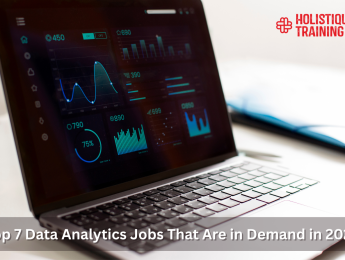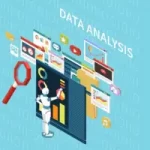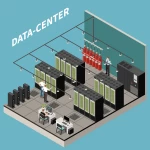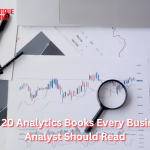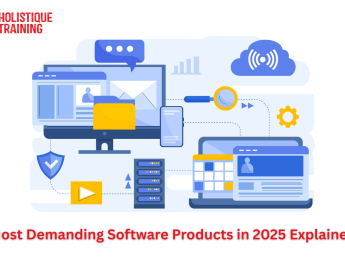- Table of Contents
- Introduction
- What Is Data Analytics? And Why Is It a Growing Field?
- What Skills Are Needed in Data Analytics Jobs?
- Data Analysis and Visualization
- Microsoft Excel
- SQL (Structured Query Language)
- Python (or R)
- Critical Thinking
- Communication Skills
- Industries That Are Hiring Data Analysts
- Why Are Different Industries Hiring Data Analysts?
- The 7 In-Demand Data Analytics Jobs
- Data Analyst
- Business Intelligence Analyst
- Data Scientist
- Data Engineer
- Marketing Analyst
- Healthcare Data Analyst
- Machine Learning Engineer
- How to Land a Job in Data Analytics
- 1. Learn the Fundamentals
- 2. Get Certified
- 3. Build a Portfolio
- 4. Join Online Communities
- 5. Apply Smartly
- 6. Practice Interviewing
- Conclusion: Is Data Analytics the Right Career for You?
Introduction
In a digital-first world, organizations are no longer guessing their way through decision-making. They are relying on data—structured, real-time, predictive, and powerful. The growing availability of big data and the development of modern analytics tools have turned data analysis into a crucial part of nearly every business sector. Whether it’s improving customer service, optimizing marketing campaigns, or detecting fraud in real-time, data analytics professionals are behind the scenes turning raw information into valuable insights.
In this article, we will explore what data analytics is and why it's booming, the key skills required for data analytics jobs, the industries actively hiring analysts, a breakdown of 7 in-demand job roles in the field, practical steps on how to land such jobs, and finally, whether this career path is right for you.
What Is Data Analytics? And Why Is It a Growing Field?
Data analytics refers to the process of examining datasets to draw conclusions about the information they contain. It involves techniques and technologies that reveal patterns, correlations, and trends, enabling companies to make informed business decisions. With the exponential growth of data—fueled by mobile apps, social media, e-commerce, IoT devices, and cloud platforms—data analytics has evolved from a niche domain into a central pillar of corporate strategy.
This transformation didn’t happen overnight. A decade ago, many companies were still relying on gut feelings or past experiences to guide their strategies. Today, competitive advantage hinges on real-time data analysis. According to the International Data Corporation (IDC), the global datasphere is expected to grow to 175 zettabytes by 2025, up from 33 zettabytes in 2018. That’s a fivefold increase in just seven years.
With this explosion of data comes an equally growing demand for professionals who can manage, analyze, and extract value from it. From business operations and marketing to healthcare and finance, data analysts are becoming the backbone of informed decision-making.
What Skills Are Needed in Data Analytics Jobs?
To thrive in a data analytics role, candidates need a mix of technical proficiency and critical thinking. Here's a closer look at the essential skills:
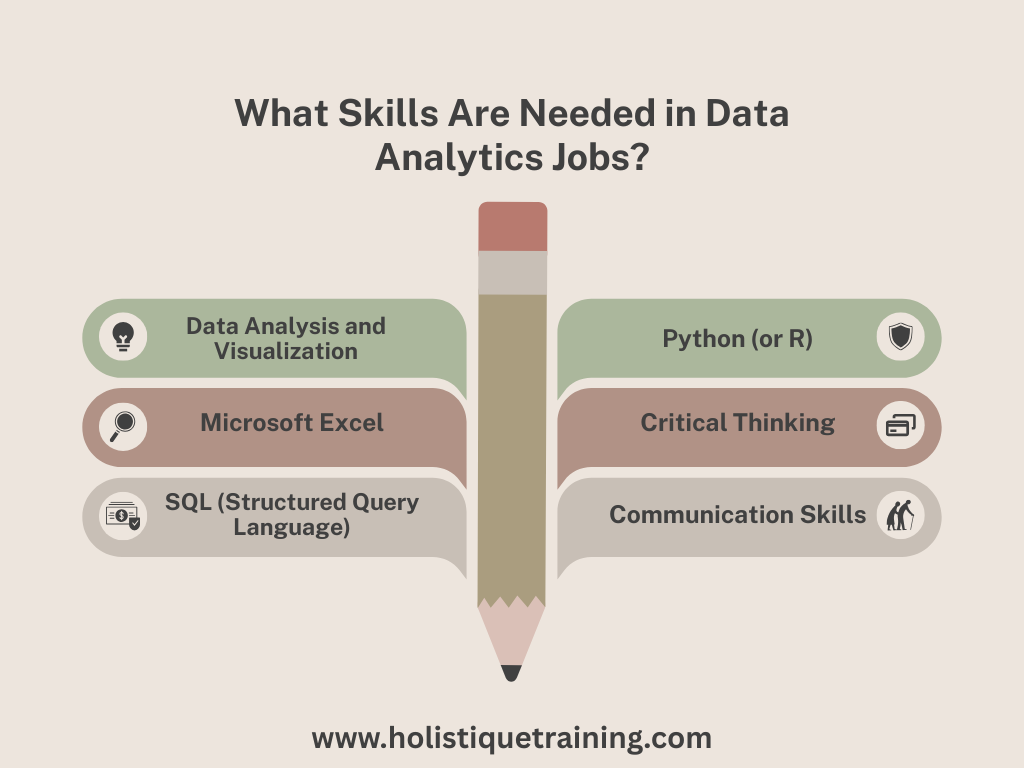
Data Analysis and Visualization
At the core of any data job is the ability to interpret data accurately. Analysts should be able to clean datasets, identify patterns, and create visualizations that make sense to stakeholders. Tools like Tableau, Power BI, and Google Data Studio have become indispensable in this process. The ability to transform raw data into compelling charts or dashboards helps non-technical teams understand the story behind the numbers.
Microsoft Excel
Though often overlooked in favor of more advanced tools, Excel remains a foundational skill in analytics. From pivot tables and VLOOKUP functions to data sorting and trend analysis, Excel provides a flexible and powerful environment for handling small to medium datasets. It’s also widely used across industries, making it an essential entry-level skill.
SQL (Structured Query Language)
SQL is the language of databases. Whether you're retrieving sales data from an e-commerce platform or customer metrics from a CRM, SQL allows analysts to extract, manipulate, and update data efficiently. Proficiency in SQL helps professionals work with relational databases such as MySQL, PostgreSQL, and Microsoft SQL Server—often a daily requirement in data roles.
Python (or R)
For more complex analysis, automation, or machine learning tasks, programming knowledge becomes critical. Python, in particular, is widely favored in the data analytics community for its simplicity, scalability, and the strength of its libraries (e.g., Pandas, NumPy, Scikit-learn). R is also widely used in academia and research-heavy roles. These languages help analysts perform deeper statistical analysis and build predictive models.
Critical Thinking
Beyond crunching numbers, analysts must ask the right questions. Why is sales revenue down this quarter? What’s causing customer churn? Critical thinking enables analysts to identify root causes, explore alternative scenarios, and offer actionable insights. It's what differentiates a data producer from a data storyteller.
Communication Skills
Having insights is one thing; explaining them effectively is another. Data professionals often present findings to stakeholders, executives, or cross-functional teams. Being able to communicate complex results in clear, concise language—sometimes supported by visual storytelling—is key to driving decisions and change.
Industries That Are Hiring Data Analysts
The demand for data professionals extends far beyond the tech world. Nearly every industry is tapping into data analytics to improve performance, predict trends, and personalize user experiences.
Why Are Different Industries Hiring Data Analysts?
Let’s break it down in the table below:
Industry | Why They Hire Data Analysts |
Healthcare | To analyze patient data, improve treatment outcomes, and reduce costs through predictive modeling. |
Finance | For risk assessment, fraud detection, and investment analytics. |
E-commerce | To track customer behavior, optimize inventory, and personalize product recommendations. |
Technology | To enhance product performance, user experience, and system efficiency. |
Education | To monitor student performance, optimize curriculum, and allocate resources. |
Retail | For sales forecasting, customer segmentation, and location-based analysis. |
Telecommunications | To reduce churn, improve service delivery, and analyze call or usage patterns. |
A report by Glassdoor (2024) listed “Data Analyst” among the top 10 most in-demand roles in finance, healthcare, and tech, further emphasizing the cross-industry value of analytics professionals.
The 7 In-Demand Data Analytics Jobs
As data becomes the lifeblood of modern business, companies across all industries are seeking specialized professionals who can extract insights, build scalable systems, and predict future trends. Below are seven of the most in-demand data analytics jobs today—each with distinct responsibilities, value to the organization, and reasons for their rising demand.
Data Analyst
Data Analysts are the backbone of most data operations, working across departments to collect, clean, and interpret data sets in order to guide business decisions. They often use tools like Excel, SQL, and visualization platforms to create reports and dashboards that translate complex information into clear, actionable insights. Their role is fundamental because they help businesses understand what is happening and why. In an age where organizations are striving to become data-driven, the need for professionals who can uncover patterns and trends is growing steadily. Even as an entry-level role, the Data Analyst is a crucial link between raw data and strategic outcomes.
Business Intelligence Analyst
Business Intelligence Analysts specialize in transforming data into visual insights that guide high-level decisions. They work with tools like Power BI or Tableau to create dashboards that reveal trends, anomalies, and opportunities for growth. By connecting data from different departments and presenting it in a clear and interactive way, BI Analysts help organizations optimize performance and stay ahead of the competition. As companies rely more on real-time insights and cross-functional coordination, the strategic impact of this role continues to grow, especially in dynamic industries like retail, logistics, and finance.
Data Scientist
Data Scientists operate at a deeper level, developing predictive models and statistical algorithms to forecast outcomes and automate decision-making. They handle massive datasets, use advanced programming in Python or R, and often apply machine learning techniques to solve complex problems. This role is not just about understanding what has happened, but also about predicting what could happen and recommending how to respond. Data Scientists bring a competitive edge to businesses by enabling them to personalize experiences, detect fraud, forecast demand, and innovate faster. As AI and automation become more central to business strategy, the value of Data Scientists continues to rise sharply.
Data Engineer
Data Engineers are responsible for building and maintaining the infrastructure that supports all data operations. They design scalable data pipelines, manage large databases, and ensure data is accessible, clean, and secure. Their work often involves cloud technologies, real-time processing tools, and automation frameworks. Without them, data analysts and scientists would struggle to access the reliable data needed for meaningful analysis. The rise of big data and cloud computing has made this role essential, as organizations increasingly require robust, high-speed systems to support everything from analytics dashboards to AI applications.
Marketing Analyst
Marketing Analysts focus on understanding customer behavior and improving campaign effectiveness through data. They track key metrics like conversion rates, engagement levels, and audience segmentation using platforms such as Google Analytics or CRM tools. By analyzing marketing funnels, A/B tests, and digital performance, they help optimize strategies and ensure a strong return on investment. This role is critical in today’s data-heavy digital marketing landscape, where companies need professionals who can balance creative thinking with analytical precision. As more brands turn to performance marketing and personalized content, the demand for skilled Marketing Analysts continues to expand.
Healthcare Data Analyst
Healthcare Data Analysts work in one of the most sensitive and impactful data environments, analyzing clinical records, patient outcomes, and hospital operations. They use data to enhance treatment plans, monitor public health trends, and ensure compliance with healthcare regulations. Their insights can lead to improved patient care, reduced costs, and better resource allocation. With the digitization of medical records and the rise of telemedicine, healthcare organizations are increasingly relying on data to make informed decisions. This growing reliance makes Healthcare Data Analysts vital players in the transformation of global health systems.
Machine Learning Engineer
Machine Learning Engineers are at the frontier of artificial intelligence, developing algorithms that allow systems to learn from data and make decisions without human intervention. They create models that power applications like recommendation engines, voice recognition, fraud detection, and predictive maintenance. Unlike Data Scientists who often focus on modeling, ML Engineers are focused on deploying these models into production environments where they deliver real-time value. As industries race to adopt intelligent automation and personalized user experiences, the demand for engineers who can build and scale machine learning systems is exploding, making this one of the most prestigious and high-paying roles in the data analytics ecosystem.
How to Land a Job in Data Analytics
Entering the data field might seem intimidating, but a structured approach can make it manageable:
1. Learn the Fundamentals
Start with free or affordable courses on platforms like Coursera, edX, and DataCamp. Focus first on data cleaning, basic statistics, Excel, and SQL. Then move on to Python or R for more advanced topics.
2. Get Certified
Certifications can boost your credibility. Some reputable ones include:
- Google Data Analytics Certificate.
- IBM Data Analyst Professional Certificate.
- Big Data & Data Analytics Management by Holistique Training.
- Microsoft Certified: Power BI Data Analyst Associate These are well-recognized in the industry and often include practical projects.
3. Build a Portfolio
Apply what you’ve learned in real-world projects. Analyze publicly available datasets (like those from Kaggle or government sites), and showcase them on GitHub or personal websites. A strong portfolio can impress recruiters even more than a resume.
4. Join Online Communities
Be active on LinkedIn, join subreddits like r/datascience, and participate in Kaggle competitions. These communities offer learning, networking, and job opportunities.
5. Apply Smartly
Tailor your resume to each job. Highlight projects and use action verbs. Use job boards like Indeed, LinkedIn Jobs, and specialized platforms like DataJobs or AnalytixLabs.
6. Practice Interviewing
Brush up on common interview questions: SQL queries, data case studies, or even basic stats. Many companies will ask for a short take-home project or analysis, so practice communicating your results effectively.
Conclusion:
Is Data Analytics the Right Career for You?
If you’re someone who enjoys problem-solving, working with numbers, and uncovering hidden stories in data, this could be the career for you. Data analytics not only offers job security and high salary potential, but it also allows for remote work, constant learning, and industry flexibility.
According to a 2024 report from the Bureau of Labor Statistics, jobs in data-related roles are expected to grow by 35% over the next decade, much faster than average occupations. That’s a strong signal that this field isn’t just a trend—it’s the future.
So, is data analytics your next career move?


